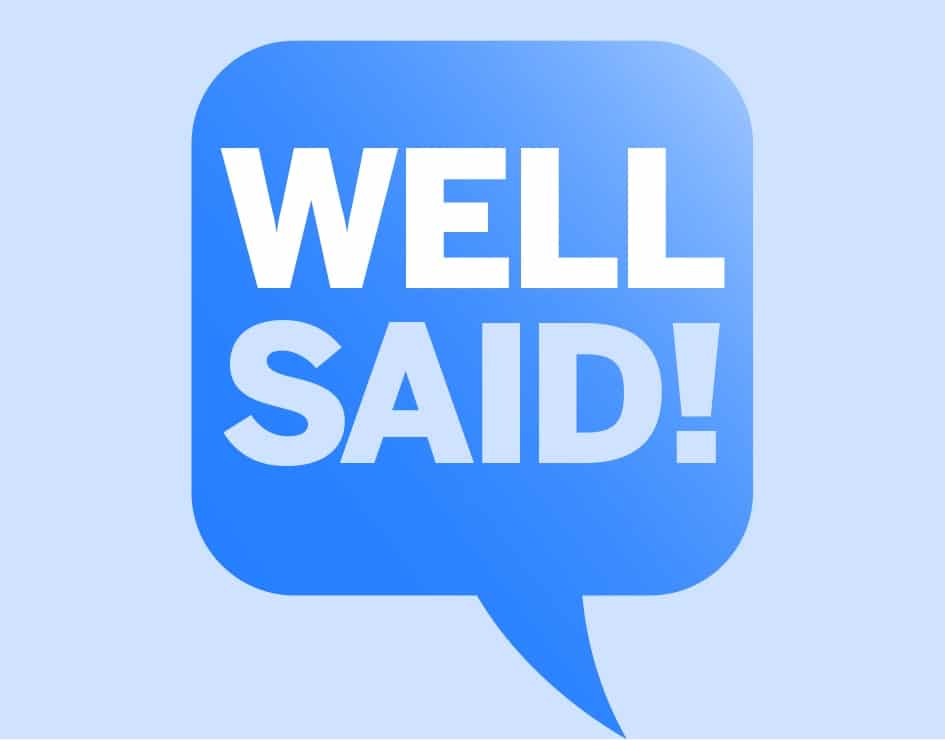As the new year approaches, a lot of firms ask their lawyers to prepare annual business or marketing plans. Even without that structure, it makes sense to take a step back to reflect and assess what has worked, what hasn’t and what should be done differently.
Originally published December 7, 2015
The difference between a thriving law firm and a law firm that fails can come down to one thing: efficiency. If you cling to old habits and fail to use more efficient methods of managing your practice, you risk sacrificing profits. Here are five common efficiency killers — and tips to help you become more productive. READ THE REST
Originally published December 4, 2015
Lawyers are hard-wired to be precise when writing and speaking. When practicing law they honor that precision rigorously. However, when it comes to interacting with their market, let’s just say their language discipline loses a lot of its rigor. Here are some common examples I encounter with too great a frequency in my coaching conversations, with suggested alternatives.
Originally published December 3, 2015
In this month's "Ask the Experts from the Legal Marketing Association," Jim Jarrell, Jacqueline Madarang and Ian Turvill tackle the question: "Technology in all its forms is quickly becoming a big part of marketing. What are the most important tools we should be using at our firm? What should we do first to make sure we’re keeping up?" ... READ THE REST
Originally published December 2, 2015
Almost every law firm has issues with collections at one time or another. At the very least, most firms would benefit from making improvements to their collections processes. So let’s take a look at some different approaches to see what might pay off for your firm. ... READ THE REST
December 1, 2015 0 0
Once again, Attorney at Work readers are the first to receive Robert Denney's annual report on the trends affecting the legal profession, “What’s Hot and What’s Not in the Legal Profession.” Which trends have staying power? What practice areas are poised for hotness? Here's what Bob has to say. ... READ THE FULL REPORT
Originally published November 30, 2015
HIghlights from "Quiet: The Power of Introverts in a World That Can't Stop Talking."
Originally published November 24, 2015
The "Contact Us" page should be one of the most heavily trafficked pages of your law firm's website — from both desktop and mobile devices. Yet this page is often overlooked, as most firms don't fully utilize it. Instead, they simply display their address and phone number. Why not bring the same thought and creativity displayed on the rest of your site to this page as well? ... READ THE REST
Originally published November 23, 2015
It's been more than a decade since I launched my annual Holiday Gift Guide for Lawyers to provide ideas for friends and family rather than have them select yet another gift plastered with the scales of justice. Over the years, I’ve guided gift-givers to law-themed gifts as well as fun tools and toys perfect for busy lawyers: from legal board games to artwork by lawyers; from bacon vodka to iPads. The 2015 edition will feature more tech gifts than ever. Technology tools can save us time, make tasks easier, remove the hassles of a hectic day, and provide access to an ever-shrinking world. That’s why tech tools make great gifts for lawyers. The 2015 Holiday Gift Guide for Lawyers will debut November 23 on ReidMyBlog.com, but I’m pleased to share a sneak preview here ... READ THE REST
Originally published November 20, 2015
Of all the unexpected gifts from our respective law schools (debt, alcoholism), one of the worst may be a ghastly writing style that appeals only to law school professors and some judges. Don’t get me wrong. Law school provided its fair share of benefits and led many of us to successful, even happy, careers. But happy or not, we all suffer from "writing like a lawyer." I didn’t realize the severity of my own affliction until I began to read successful bloggers — none were attorneys. Yes, there were errors, sentence fragments and poor vocabulary but I was enthralled. I vowed to change my own style. Here are some tips I picked up during my transformation. ... READ THE REST
Originally published November 19, 2015